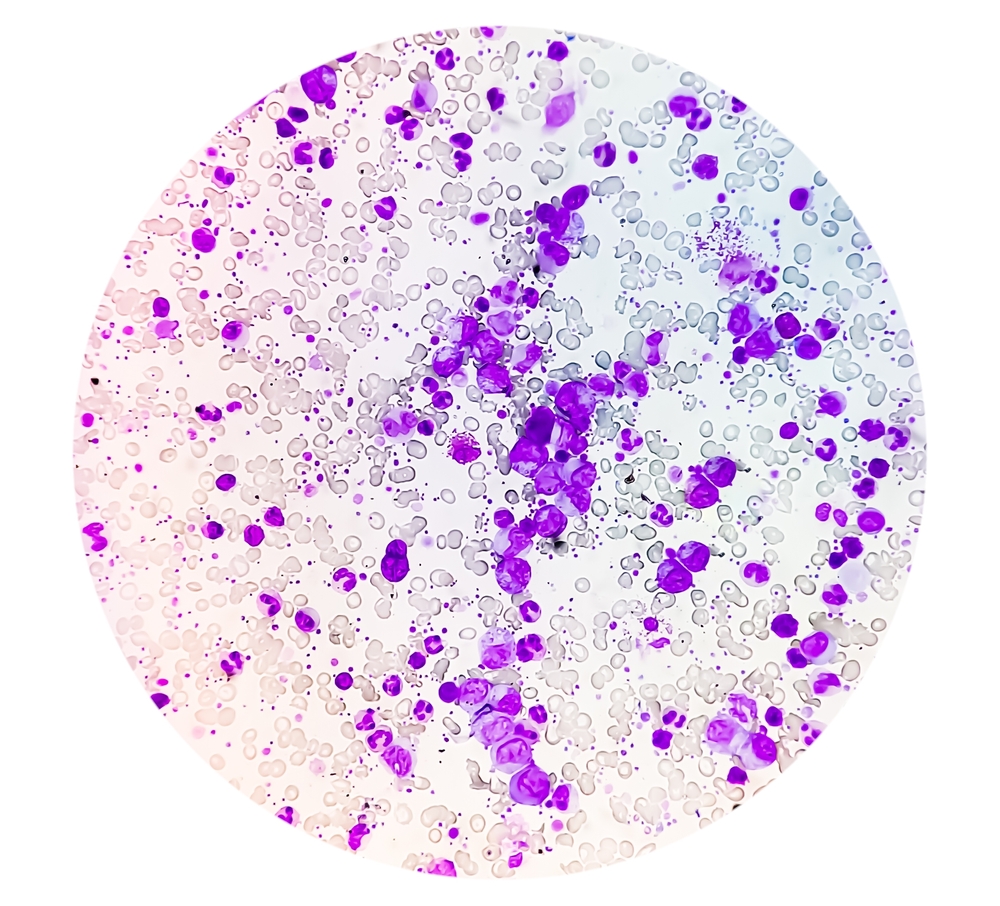Results from the FREEDOM2 phase 3 trial supported the efficacy of fedratinib versus best available therapy (BAT) in patients with myelofibrosis previously treated with ruxolitinib. The results were published in The Lancet Hematology.
FREEDOM2 was a multicenter, open-label, randomized, controlled, phase 3 trial conducted in 86 clinics in 16 countries, in which patients at least 18 years of age with intermediate-2 or high-risk myelofibrosis that was relapsed or refractory or intolerant to ruxolitinib were stratified by spleen size by palpation, platelet count, and previous ruxolitinib treatment, and randomly assigned 2:1 by interactive response technology to receive fedratinib 400 mg per day (4 × 100 mg capsules orally once daily, open-label) or BAT.
Of 316 patients screened, 201 were randomly assigned and treated (134 to fedratinib, 67 to BAT [including 52 receiving ruxolitinib]); 46 patients from the BAT group crossed over to fedratinib.
Spleen volume reduction (SVR) of at least 35% (SVR35) at the end of cycle six, which was the primary endpoint, was seen in 48 (36%) of 134 patients receiving fedratinib versus four (6%) of 67 patients receiving BAT (30% difference; 95% CI 20–39; one-sided P-value<0·0001).
In terms of safety, during the first six cycles 53 (40%) of 134 patients in the fedratinib group and eight (12%) of 67 patients in the BAT group had grade 3 or greater treatment-related adverse events, most frequently anemia (fedratinib 12 [9%] of 134; BAT 6 [9%] of 67) and thrombocytopenia (fedratinib 16 [12%] of 134; BAT 2 [3%] of 67); one patient in the fedratinib group died from acute kidney injury suspected to be related to study drug (no treatment-related deaths in the BAT group). Gastrointestinal adverse events occurred more frequently in the fedratinib group compared with the BAT group, but were mostly grade 1–2 in severity and more frequent in early cycles, and were less frequent than in prior clinical trials.
“Most patients with myelofibrosis develop ruxolitinib intolerance or disease that is relapsed or refractory, and survival rates after ruxolitinib discontinuation are poor,” the researchers wrote. “Findings from FREEDOM-2 support fedratinib as a second-line Janus kinase inhibitor option to reduce spleen size after ruxolitinib failure or intolerance in patients with myelofibrosis and shows effective strategies for management of gastrointestinal adverse events and low thiamine concentrations through prophylaxis, monitoring, and treatment.”
Reference
Harrison CN, Mesa R, Talpaz M, et al. Efficacy and safety of fedratinib in patients with myelofibrosis previously treated with ruxolitinib (FREEDOM2): results from a multicentre, open-label, randomised, controlled, phase 3 trial. Lancet Haematol. 2024;11(10):e729-e740. doi:10.1016/S2352-3026(24)00212-6








Leave feedback about this